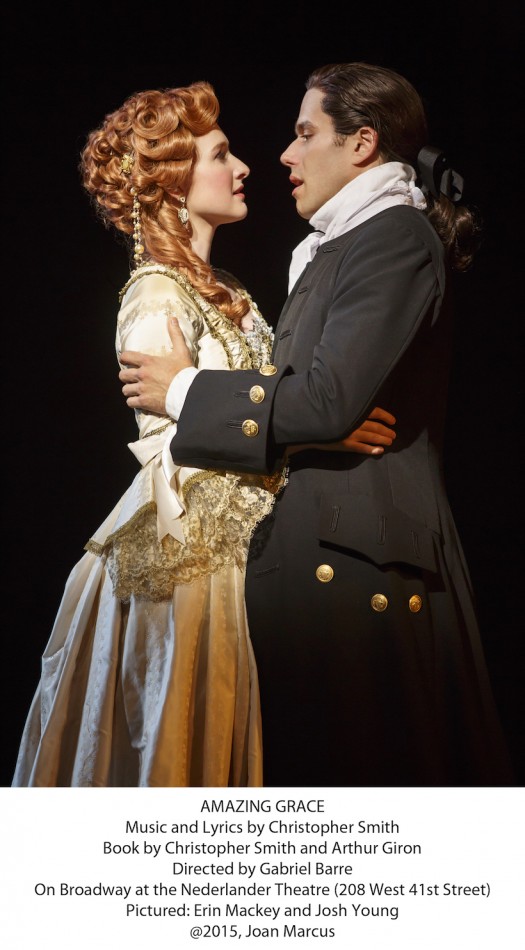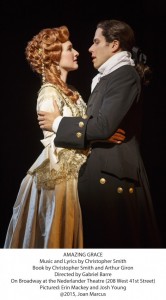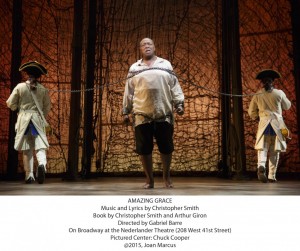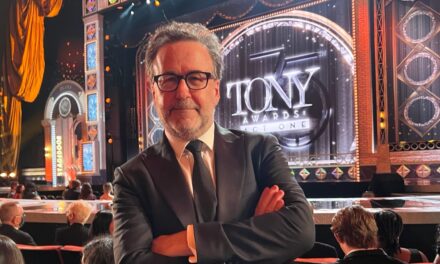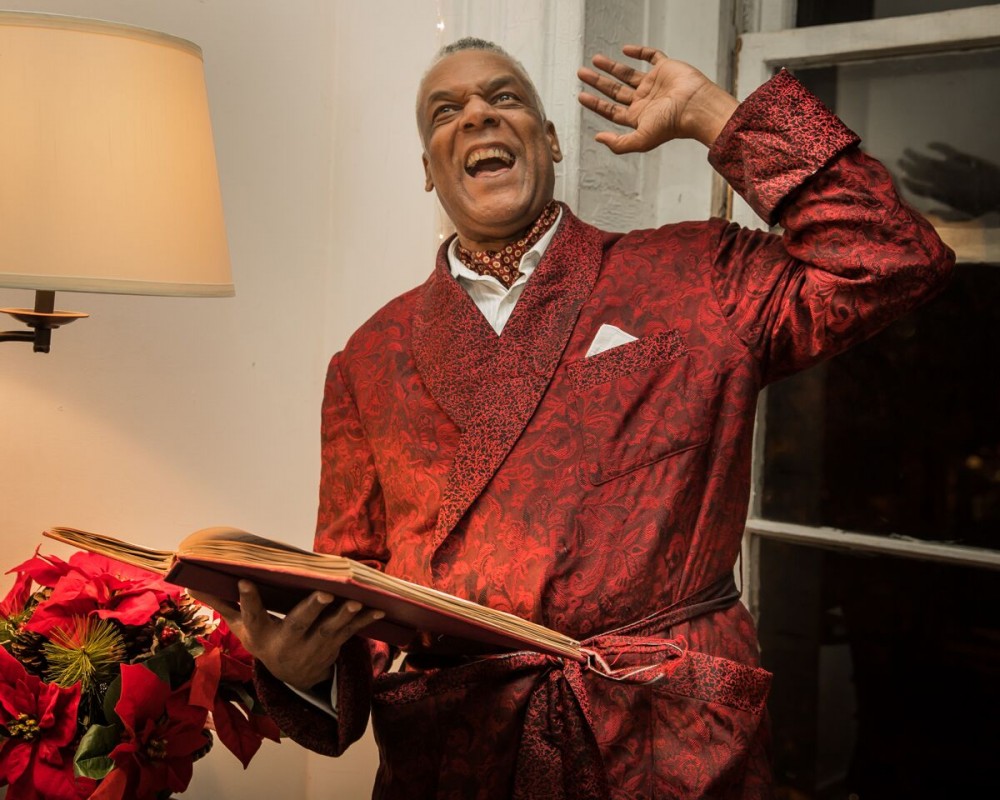By Michall Jeffers
There is a transcendent moment at the end of the first act of Amazing Grace. Water appears to be rising, as sailors fall deeper and deeper, drowning after their ship has been sunk. One of these men is John Newton, the protagonist of the story. As he descends, his hand is caught by his slave, Thomas, who pulls him up to the surface and life. Kudos to director Gabriel Barre, who has given us an image we will long remember, symbolic, artistic, thrilling.
If only the rest of this musical had lived up to that scene. Instead, we get an ungainly pastiche of different genres, part 1776, part Tarzan movie, part Horatio Hornblower, part Titanic. This is supposed to be the story of the conversion of a slave dealing sinner into the deeply spiritual composer of the title song. Had the show begun with this hymn, the stage would have been set for the audience to understand why John Newton was important at all. As it is, we get the anticipated final curtain rendition, with full chorus of disparate characters holding hands. I half expected someone in the cast to shout out “Everybody!” to persuade audience members to join in. That, at least, would have ended this stolid production on a lively note.
There are other missed opportunities, and a few major gaffs. At the forefront is the fact that Josh Young plays John Newton completely on one note. He’s a sullen adolescent, drinking to excess, when he should be a dashing young rake; the bad boy who’s irresistible to the good girl. His rebellion against his wealthy merchant father should have an enticing, volatile edge; instead, he’s a tedious juvenile, ticked off because he has to drive a Mercedes instead of a Jag. When John turns to the dark side, and begins dealing slaves in earnest, we yearn to see a man who has truly touched bottom, desperate, beaten, savage. At this point in the story, petulant just doesn’t sell it. So when Newton the Younger has his miraculous transformation, rather than Saint Paul on the road to Damascus, we’re given the reaction of a man who figures out that a Mac is better than a PC…oh yeah, now I get it. Young does have a full, rich voice. The cast album may show him off to better advantage than the production.
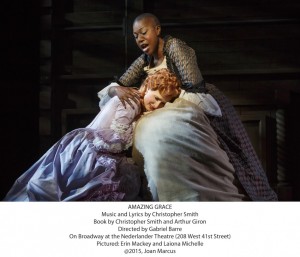

.
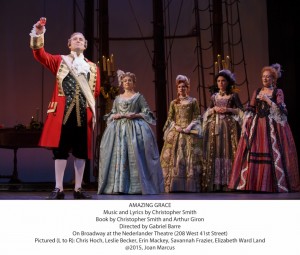

No doubt, the song Amazing Grace is lovely and moving. But for the far more seminal story of how slavery was abolished in England, watch the 2006 movie of the same name. It stars the venerable Albert Finney as the much older and wiser John Newton, and Ioan Gruffudd as William Wilberforce, the man who, in spite of great obstacles (including being ridiculously handsome), did the heavy lifting in ending the transatlantic slave trade.
Amazing Grace, Nederlander Theatre, 877-250-2929, amazinggracemusical.com.
Running time: 2 hours 30 minutes. Photos: Joan Marcus
Josh Young (John Newton), Erin Mackey (Mary Catlett), Tom Hewitt (Captain Newton), Chuck Cooper (Pakuteh “Thomas”), Chris Hoch (Major Gray), Stanley Bahorek (Robert Haweis), Harriett D. Foy (Princess Peyai), Laiona Michelle (Nanna), Rachael Ferrera (Yema), Elizabeth Ward Land (Mrs. Catlett)
Director, Gabriel Barre; music & lyrics, Christopher Smith; book, Christopher Smith & Arthur Giron; choreographer, Christopher Gattelli; sets, Eugene Lee & Edward Pierce; costumes, Toni-Leslie James


